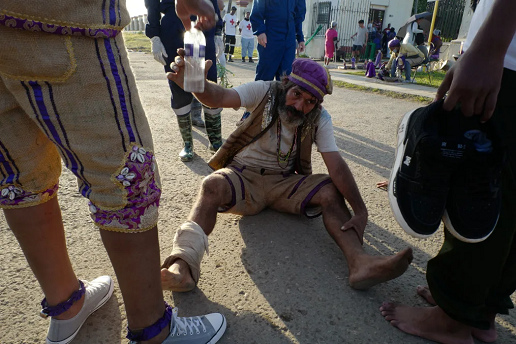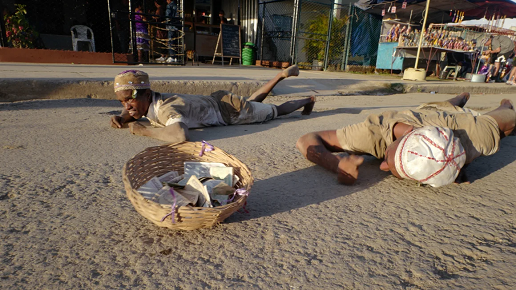Each year on December 17, thousands of Cubans honor St. Lazarus, the patron saint of the poor and the sick, with one of Cuba’s largest and most vibrant religious processions. Pilgrims crawl, walk barefoot, or even carry heavy burdens for miles to El Rincón church in Havana, seeking blessings and miracles.
This tradition highlights the resilience of faith in Cuba, a nation officially secular but deeply spiritual. Many devotees blend Catholicism with Santería, a syncretic religion rooted in African Yoruba traditions. St. Lazarus, known for granting health and healing, is revered by both Catholics and Santería followers, despite tensions between the two faiths. A pilgrim accepts water from medics as he crawls backwards to honor St. Lazarus. Patrick Oppmann/CNN
A pilgrim accepts water from medics as he crawls backwards to honor St. Lazarus. Patrick Oppmann/CNN
Amid worsening economic conditions, including blackouts and mass emigration, faith remains a source of hope for Cubans like Fernando Valdez, who has walked barefoot for 27 years in devotion to St. Lazarus.
“Faith gives us a reason to live,” Valdez says. For many Cubans, it’s their guiding light through life’s challenges, offering strength in a time of uncertainty and economic hardship.







